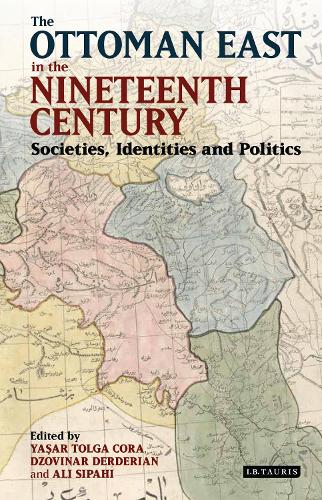
The Ottoman East in the Nineteenth Century: Societies, Identities and Politics
(Hardback)
Publishing Details
The Ottoman East in the Nineteenth Century: Societies, Identities and Politics
By (Author) Ali Sipahi
Edited by Dzovinar Derderian
Edited by Yasar Tolga Cora
Bloomsbury Publishing PLC
I.B. Tauris
30th June 2016
United Kingdom
Classifications
General
Non Fiction
956.015
Physical Properties
Hardback
352
Width 140mm, Height 218mm, Spine 32mm
600g
Description
The Ottoman East what is also called Western Armenia, Northern Kurdistan or Eastern Anatolia compared to other peripheries of the Ottoman Empire, has received very little attention in Ottoman historiography. So-called taboo subjects such as the fate of Ottoman Armenians and the Kurdish Question during the latter years of the Ottoman Empire have contributed to this dearth of analysis. By integrating the Armenian and Kurdish elements into the study of the Ottoman Empire, this book seeks to emphasise the interaction of different ethno-religious groups. As an area where Ottoman centralization faced unsurpassable challenges, the Ottoman East offers an ideal opportunity to examine an alternative social and political model for imperial governance and the means by which provincial rule interacted with the Ottoman centre. Discussing vital issues across this geographical area, such as trade routes, regional economic trends, migration patterns and the molding of local and national identities, this book offers a unique and fresh approach to the history and politics of modernization and empire in the wider region."
Reviews
'This is a very unique and valuable study on the nineteenth-century Ottoman East ... we learn about the local physical spaces, the local actors as they negotiate their identities and relations with the imperial state and, in doing so, shape their social and physical environment ... an excellent volume.' - Fatma Muge Gocek, Professor of Sociology and Women's Studies, University of Michigan, 'An extraordinarily important project ... Ottoman studies has been growing exponentially in the last decade, and among the most important developments has been the study of regions and the integration of the histories of the various peoples of the empire into a broader Ottoman history. Left out to a large degree has been the complex histories of the eastern provinces, that is "historic Armenia," current-day Kurdistan. It was in this region where the international diplomatic struggles known as "the Eastern Question" or "Armenian Question" focused. It was here that the genocide of Armenians and Assyrians took place in 1915-6. Yet the background to those larger issues and events has not been adequately explored. This volume is the first serious investigation into the region and makes a significant contribution to our knowledge.' - Ronald Grigor Suny, Charles Tilly Collegiate Professor of Social and Political History, University of Michigan
Author Bio
Ali Sipahi holds a PhD in Anthropology and History from the University of Michigan. Yasar Tolga Cora is a PhD Candidate in Near Eastern Languages and Civilizations from the University of Chicago.Dzovinar Derderian is a PhD Candidate in Near Eastern Studies from the University of Michigan.
